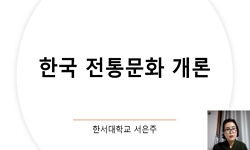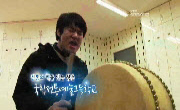In the 1950's, Korean literary world in hopeless situation after war was faced to a turning point to develop to modern literature. Besides the confusion and generation gap attendant on transition, there are various attempts to seek the newness that is...
http://chineseinput.net/에서 pinyin(병음)방식으로 중국어를 변환할 수 있습니다.
변환된 중국어를 복사하여 사용하시면 됩니다.
- 中文 을 입력하시려면 zhongwen을 입력하시고 space를누르시면됩니다.
- 北京 을 입력하시려면 beijing을 입력하시고 space를 누르시면 됩니다.
부가정보
다국어 초록 (Multilingual Abstract)
Hereupon the tradition-modernity argument was happened between older and new literary generation. this argument combined two complicated factors was spread widely to the whole literary world. First, new generation denied the literature composed by older generation that came into literary power, in the way of denying the tradition. Second, new generation critics that literature of older generation is naturalism and conservative lyricism failed to grasp the reality after war. Therefor, modernism based on existentialism is advocated by them as the modern literary form that can deny old literary tradition.
Until the latter half of 1960's the argument on tradition was continued, and the practical attempts to unit the tradition and modernity were presented in various form. It is evaluated to significant sense of this argument that was ended as discussion about the construction of the anti-imperialistic & anti-feudal, national literature, having the notion that tradition is the inheritance that is available to build current literature through the recognition about present problems. That is to say, this argument contributed to develop the korean modern national literature. Finally, this tradition-modernity controversy was developed to the theory of national literary theory of the 1970's.
In the 1950's, Korean literary world in hopeless situation after war was faced to a turning point to develop to modern literature. Besides the confusion and generation gap attendant on transition, there are various attempts to seek the newness that is the feature of contemporary literature(modernism). At that time, new generation critics professing 'apre`s guerre' are appeared, and writers composed the works in the other way of established literary form of older generation. Especially, they inspected the whole past literature as tradition, and accepted existentialism and modernism considered as the contemporaneousness.
Hereupon the tradition-modernity argument was happened between older and new literary generation. this argument combined two complicated factors was spread widely to the whole literary world. First, new generation denied the literature composed by older generation that came into literary power, in the way of denying the tradition. Second, new generation critics that literature of older generation is naturalism and conservative lyricism failed to grasp the reality after war. Therefor, modernism based on existentialism is advocated by them as the modern literary form that can deny old literary tradition.
Until the latter half of 1960's the argument on tradition was continued, and the practical attempts to unit the tradition and modernity were presented in various form. It is evaluated to significant sense of this argument that was ended as discussion about the construction of the anti-imperialistic & anti-feudal, national literature, having the notion that tradition is the inheritance that is available to build current literature through the recognition about present problems. That is to say, this argument contributed to develop the korean modern national literature. Finally, this tradition-modernity controversy was developed to the theory of national literary theory of the 1970's.
동일학술지(권/호) 다른 논문
-
- 현대문학이론학회
- 한명환
- 2002
- KCI등재
-
1960년대말-70년대초 '시민문학론' 발의 및 '민족문학론'의 변주 양상
- 현대문학이론학회
- 한강희
- 2002
- KCI등재
-
- 현대문학이론학회
- 안혜련
- 2002
- KCI등재
-
- 현대문학이론학회
- 강연호
- 2002
- KCI등재





 KISS
KISS






